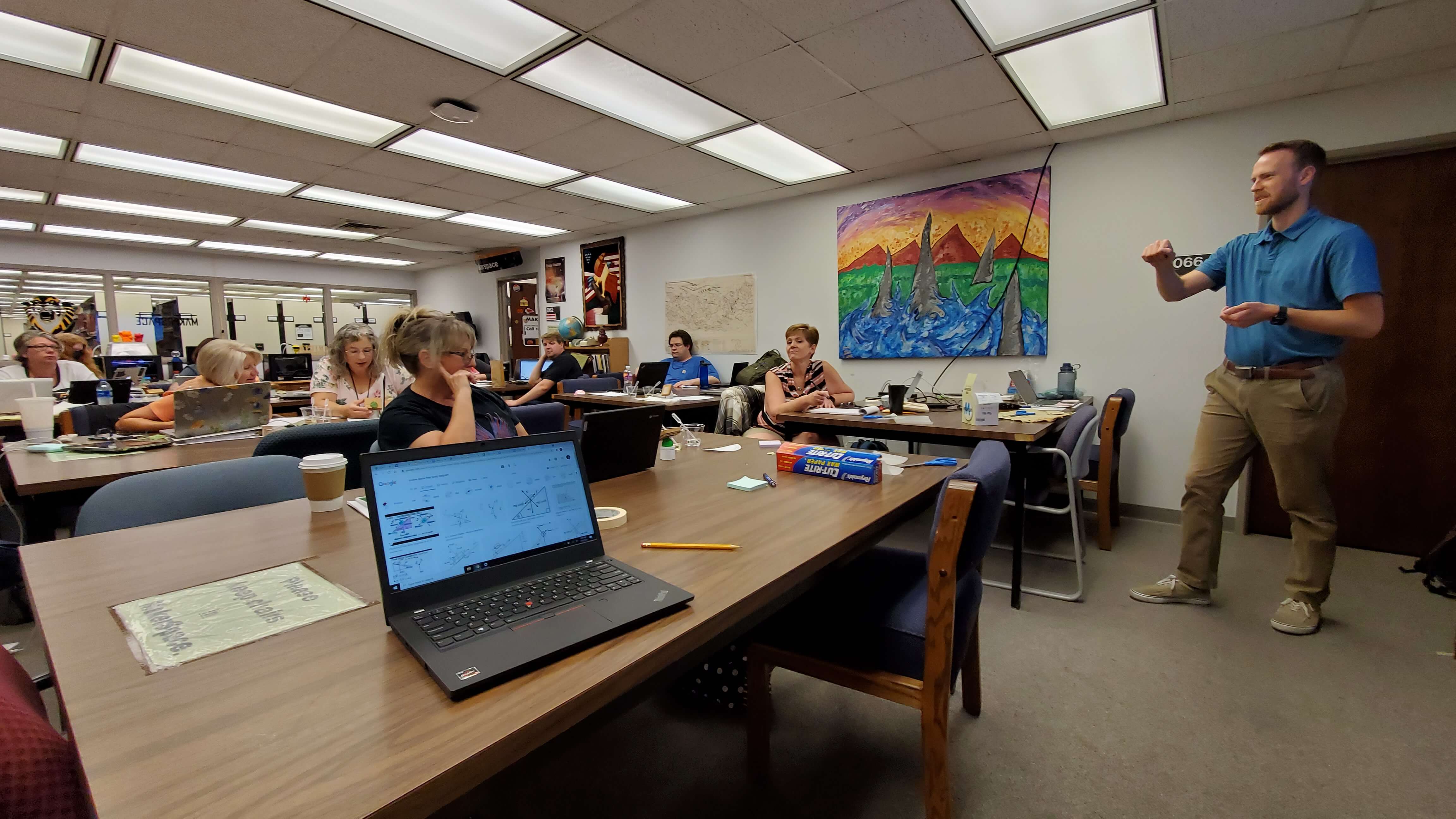NASA grant brings Kansas teachers to FHSU

7/21/21
Kansas middle school science educators spent the week at Fort Hays State University learning to incorporate engineering activities into their classrooms.
With funding from the Kansas NASA Space Grant, FHSU’s Science and Mathematics Education Institute organized and hosted a four-day summer workshop for a dozen teachers from all over Kansas. These teachers experienced various hands-on classroom activities designed to be adapted to any school or classroom science program.
Since the adoption of the Next Generation Science Standards (NGSS), Kansas teachers are expected to incorporate more hands-on learning and engineering into their lessons. One of the main objectives of the NASA grant is to expand opportunities in science and engineering education, which aligns closely with the NGSS.
“We have an amazing venue for these teachers to explore and learn,” said Dr. Paul Adams, dean of the College of Education and Anschutz Professor of Education and professor of physics. “The Science and Mathematics Education Institute Makerspace, housed here in the Tebo Library, mostly funded through alumni donations, offers a space unique to Fort Hays State and well suited for these activities.”
Dr. Adams also recruited exceptional teachers with significant expertise in incorporating STEM and engineering into the classroom to lead the workshop—high school teachers Andrew Taylor and Matt Peterie. While Taylor teaches mainly freshman-level biology and Peterie upper-level physics, they provide insight into how to incorporate engineering into the different science disciplines.
The attending educators experienced what it is like to be students once again at the workshop. An example of a classroom activity they experienced included teams of teachers creating parachutes and protective landing vehicles for eggs that were to be dropped from the top of Tomanek Hall. Would the eggs survive the fall?
The activity was followed by a discussion of results and another round of design. This format of exploration of a topic, with activities that can be tested, discussed, improved upon, and retested, demonstrates how combining practice with a discussion of results can lead to improvement. Sharing this type of fun, engaging, hands-on activity that middle school students can enjoy while learning is what this workshop is all about.
Thanks to the NASA grant funding, participating teachers received a $500 stipend for participation and $800 in housing and travel expenses. Teachers also qualified for graduate-level college credit if they wanted to take advantage of that opportunity.